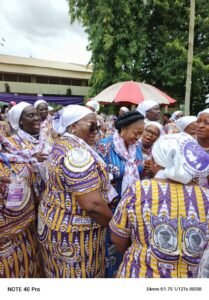
Executive Director of DI, Richard Ahiagbah
The Danquah Institute (DI) has shot down the propaganda splashed on social media by National Democratic Congress goons against the NPP government, particularly President Nana Addo Dankwa Akufo-Addo, in respect of the collapse of some banks and other financial institutions in the country.
After a scathing attack on NPP leading member and former Minister of Gender, Children and Social Protection, Otiko Afisa Djaba, the NDC over the weekend unleashed yet another salvo at the party and leading functionaries, creating the impression that the nation was under siege from a “Looting Brigade” other than their own bands referred to in court rulings a couple of years ago.
Reacting to a story, which is doing rounds on social and main stream media, about the collapse of some financial institutions in the country, the Danquah Institute said, while the NPP did not contribute to the collapse and therefore cannot be cited for a crime that the previous government deliberately committed, it has a responsibility to help set the records straight.
Poison
The Executive Director of DI, Richard Ahiagbah, told journalists yesterday in Accra that “the noisy garbage contained in the circulated video is fabricated” and part of a grand strategy to poison the atmosphere, create enmity and distort the issues.
Mr Ahiagbah indicated that the Akufo-Addo government, after taking over from the John Mahama administration, inherited a banking sector riddled with myriad of problems and had already, on the basis of those problems, sought the assistance of the World Bank in instituting measures to restore sanity in the sector.
He stated that, in doing that, it came out that a total of nine universal banks and some 23 specialised deposit-taking institutions, as well as 386 microfinance and credit institutions, were barely hanging in 2017.
He argued that Akufo-Addo government, however, chose the most challenging approach, “realistic and consistent with its compassionate liberal conservative values, to protect the interest of depositors, employees and the economy,” adding that it is that approach that has saved the struggling banks to promote long-term growth and confidence in the sector.
NDC impotent options
According to Mr Ahiagbah, the Mahama administration opted to use liquidity support without a plan to address the underlying regulatory deficits and corporate governance malpractices.
“Owners and directors of some financial institutions appeared to be in lockstep with regulatory which may have caused them to look away as depositors fund are funnelled into personal investment in which known NDC functionaries threw all caution to wind,” he said.
He added that government under the watch of John Mahama, stakeholders and directors of defunct banks advanced personal loans to themselves, contrary to section 70(4) of Act 930.
“If depositors save their monies with financial institutions and then the directors siphon the saving to buy homes abroad, divert them into personal enterprises or make personal loans to themselves against the banking laws, what should a responsible government do?” he queried.
Illustrating how far Ghana has come, since the intervention by the Minister of Finance, Ken Ofori-Atta, he acknowledged that the liquidity and capital adequacy, which in 2017 was purged at 25 per cent and 14.6 per cent respectively, have improved, as of May 2020, to 30 and 21 per cent respectively.
This, he explained, was achieved through good corporate governance and prudence, resulting in a drastic reduction in non-performing loans from 21 and 14.3 per cent, equivalent to about GHC1.46 billion.
Source: Daily Statesman


